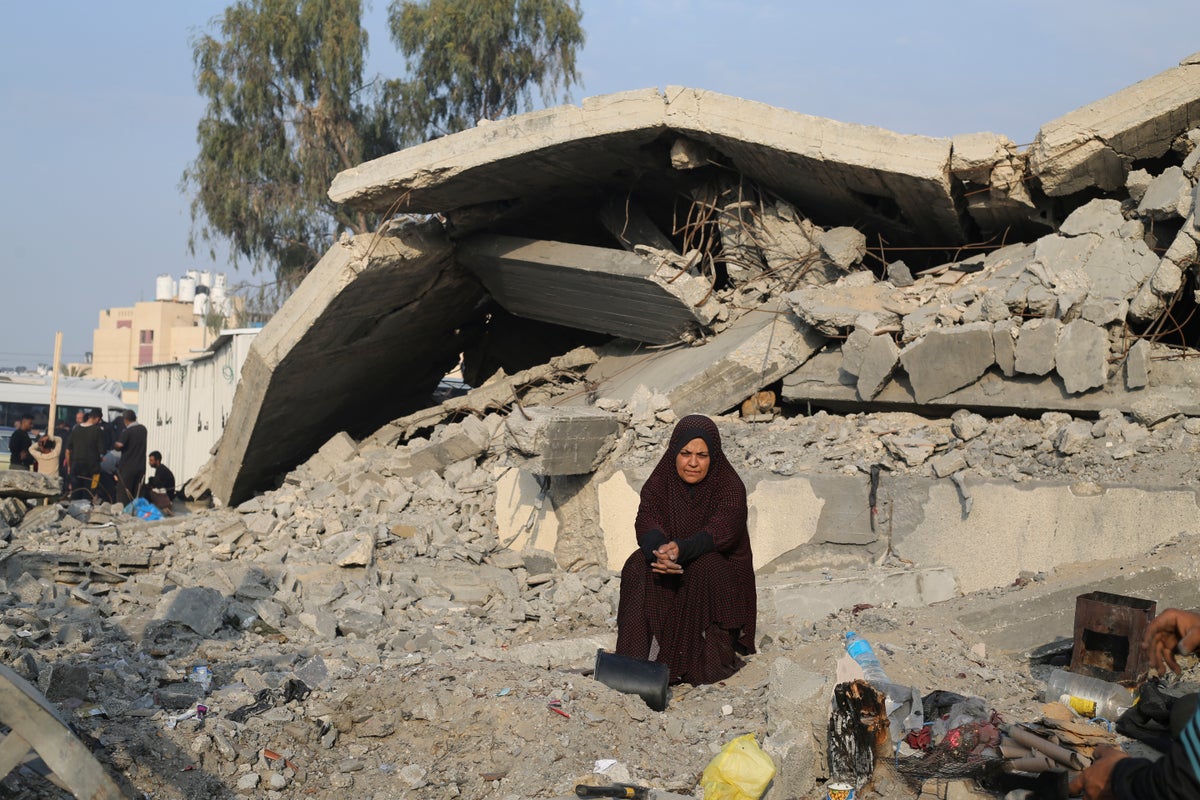
Palestinian women in Gaza are being forced to use scraps of tent cloth and paper in place of pads as period poverty soars and sanitary products grow increasingly scarce.
While World Menstrual Hygiene Day is marked globally on Tuesday, displaced women in Gaza have described being unable to shower more than once a month and having limited access to toilets.
Women have described getting their period as “one of the worst things” as products almost disappear from local markets in the besieged strip while prices soar for the limited supply.
30-year-old Duaa, who now shelters in a tent on the grounds of a hospital in Deir Al Balah, said she has been unable to use toilets at times while on her period.
“[The] toilets are not always functioning nor are they always open...It’s a hassle trying to use the [toilet],” she said.
“People bang on the door the second you walk in...Sometimes, we’re denied access to the bathroom. I look for other [toilets] only to find them in a terrible condition.
“I shower once a month. Only after my period is over. And that’s it...I can’t even shower weekly, let alone daily… I would love to shower at least once a week, but I cannot.”
Since the Israeli military intensified its attacks on Rafah earlier this month, ActionAid said the amount of humanitarian aid entering Gaza had dropped significantly, pushing people closer towards famine and denying them essentials, including period products and soap.
Riham Jafari, Advocacy and Communications Coordinator at ActionAid Palestine said the “inhumane” conditions have made it almost impossible for women and girls to manage their period in a safe, hygienic way that preserves their dignity.
Ms Jafari said: “With period products either unavailable or unaffordable, women are being forced to resort to using potentially unsafe and unhygienic alternatives including tent scraps, bits of clothing, or paper – which could put their health at risk.
“In the areas where people have been displaced to, there simply aren’t enough toilets and showers, making it even harder for people to manage their periods.”
Another Palestinian woman, Israa, 20, said it has become “really difficult” for her to manage her period while living in a tent in Deir Al Balah, central Gaza.
“A pack of [period] pads is 15-17 shekels [£3.20- £3.60] Who can afford to spend this much every month? “ she said.
She added that maintaining her hygiene with limited facilities and hygiene products has become much harder as the weather grows warmer.
She said: “It’s difficult to live and maintain your hygiene in a tent. It’s almost summer now; Back home, we [could] shower a few times a day. Nowadays, we can barely shower and wash our hair once a week. And personal hygiene products are not available.”
Likewise, Huda, 33, who is living in a tent on the grounds of a hospital in central Gaza with her three daughters, said getting her period is now “terrible”.
“Having your period with no access to water, pads, or soap is one of the worst things,” she said.
“Having your period here is terrible...When one of my daughters has her period, she has to buy pads for 10-15 shekels [£2-3]. It’s too much. We cannot afford it.”
She added: “Nothing works... It is a real hassle to have your period in the summer with no water, no soap, no sanitization and without decent women’s products. Everything we use is useless.”
MsJafari said: “Getting their period each month only adds to the distress and discomfort of women and girls in Gaza, who have lived with daily fear, uncertainty, danger and trauma for eight months now.
“With aid operations majorly disrupted, the humanitarian situation is deteriorating by the day. This cannot go on, we urgently need a permanent ceasefire now, to stop the killing and allow desperately needed aid to flood into Gaza quickly and safely.”
You can help ActionAid supply dignity kits – which include enough period products and toiletries to last a month – to women and girls in Gaza by donating to their appeal here.







